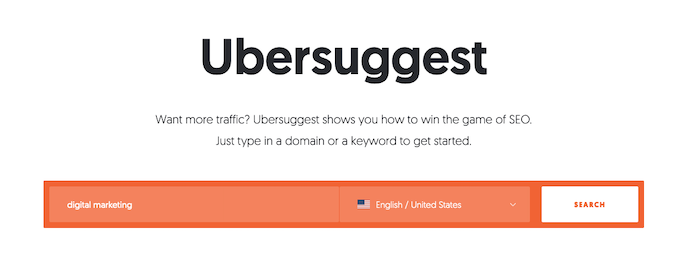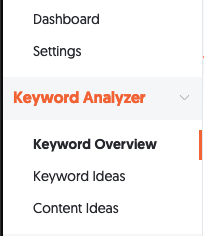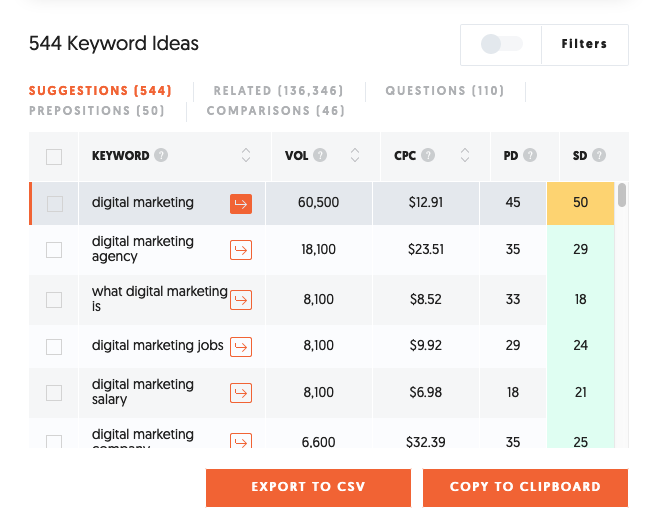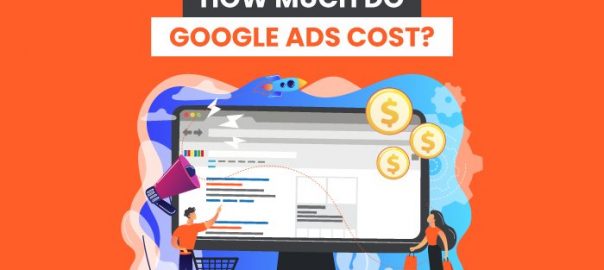Everyone always asks me the same thing whenever I recommend business owners invest in PPC advertising:
How much do Google Ads Cost?
My answer is always the same. It depends.
The truth is the cost of Google ads can vary massively depending on your industry and your strategy. Some businesses can be competitive with a budget as small as a couple of hundred bucks a month. Others need to spend several thousand dollars to see results.
My intention with this article isn’t to give you a definitive answer to how much Google ads will cost your business because there simply isn’t one answer. Instead, my goal is to explain:
- how Google calculates the cost of ads
- the factors affecting the cost of ads
- how you can quickly find out how much keywords will cost
- how to reduce your ad spend while remaining competitive
Ready to get clear on Google ads’ costs and learn how to make the most of your budget? Then let’s begin.
How Does Google Calculate Ad Costs?
Google doesn’t set a cost for each ad. Rather, it uses an auction model where companies bid on each keyword.
That means millions of auctions are happening on Google every minute.
It also means pricing is fluid based on how much competition you have and how much those competitors are willing to pay. Price swings aren’t uncommon as demand rises and falls.
You don’t need a big budget to compete, however. Google offers a reasonably level playing field that may allow the Davids of this world to compete with the Goliaths. The platform’s formula for showing ads (Ad Rank) depends on two factors: your ad’s quality score and your maximum bid.
What Are Your Ad Quality Score and Maximum Bid?
The maximum bid is the highest amount you will pay for each click of your ad. You set this when you create campaigns and can edit it at any time. The maximum amount you are willing to bid may favor big brands, but the quality score allows anyone to compete.
Google uses several factors to calculate an ad’s quality score, including its relevance to the keyword in question, the ad’s click-through-rate (CTR), and how good Google thinks the page is.
How Does Ad Rank Work?
Google uses the following formula to calculate ad ranks:
Ad rank = (Maximum bid) x (Ad QS)
If your maximum bid is $5 and you have a quality score of 6, your ad rank is 30 (5×6). The advertisement with the highest ad rank takes the first spot. The ad with the second-highest rank takes the second spot, and so on.
Google also uses ad rank to calculate how much you pay for each click:
Ad cost = (Ad rank of ad below) / (Your QS) + $0.01
As you can see, it pays to have a very high-quality score.
6 Factors Affecting the Cost of Google Ads
Multiple factors impact how quality scores and ad ranks are calculated and how much you will pay. Here are the key ones you need to know.
1. Ad Type
Google offers several different ad types, each of which has different average CPCs.
- Search Ads: The most popular Google ads and the ones with the highest average CPC
- Shopping Ads: Now free for most advertisers. They can be expensive depending on the products you sell
- Display Network Ads: The cheapest and least effective form of Google advertising
2. Schedule
The periods in which you schedule your ads to run can greatly impact how much your ads cost.
If everyone in your industry wants to advertise to consumers during the same period, the competition will be huge, and ad costs will soar.
Advertising out of high-demand hours could stretch your budget further, though you should keep an eye on data about when your consumers are clicking—there’s no point in running ads no one sees.
3. Device Targeting
Some keywords cost more if you target one device over another. B2C keywords will probably cost more if you target mobile devices, and B2B keywords will likely be more expensive for desktops.
4. Bidding Strategy
Advertisers can choose from eight types of automated or smart bidding strategies on Google. Each has different goals and can impact the cost of your ads in different ways.
Smart Bidding
Google uses machine learning to optimize the bidding process, raising and lowering bids automatically to achieve one of four desired outcomes:
- enhanced CPC to maximize conversion value
- target CPA to achieve a pre-set target cost per action
- target ROAS to achieve a pre-set target return on ad spend figure
- maximize conversions to get as many conversions as possible
Choosing to maximize conversions will typically be more expensive than achieving a target CPA or an enhanced CPC.
Maximize Clicks
Google will try to send as many people to your site as possible and charge you more as a result.
Enhanced Cost-Per-Click (ECPC)
Google automatically adjusts manual bids to drive more conversions while keeping the same cost-per-conversion. You could pay more per bid, but your ROI should be consistent.
Maximize Conversions
Google will maximize the number of conversions your ad budget can generate. This can result in a higher CPC.
Target Cost-Per-Acquisition
Choose a CPA, and Google will aim to drive as many conversions from it as possible. This is an excellent option for controlling your ad spend, but Google may sometimes bid more than your target CPA.
Target Return on Ad Spend
You set a target revenue you want your ads to generate, and Google will adjust bids automatically to meet it. This strategy puts you in greater control of your ROI.
Target Search Page Location
Google will adjust your bids so you may automatically appear on the first page of Google or in one of the top positions. Again, this will cost more.
Target Outranking Share
Choose another advertiser’s site you want to outrank. Google will adjust your bids to potentially make this possible.
Your Industry
If there’s one factor that will determine your Google ads’ cost more than any other, it’s your industry. The more competition there is for high-value clicks, the higher the cost.
Law, insurance, gambling, and finance are infamous for their high CPCs, for instance. Some keywords can cost over $100 per click. But, they tend to result in a ton of income for businesses if they convert.
There isn’t a lot you can do to lower these costs if you’re in one of those high-demand businesses except targeting less in-demand keywords, so ultimately the choice of using PPC on Google is up to you and your budget.
Your ROI
So far, we’ve been assessing ads’ costs by looking at what Google charges you for each click. But, there’s another way to look at it.
Rather than focus on the ad’s cost in isolation, we can consider any revenue generated as a result.
Let’s say your ads direct users to a landing page where they can sign up for a trial of your product. A certain number of people who click on your ad will sign up for a trial, and some will then pay for your product after the trial.
If the amount of revenue generated by people paying for your product is higher than the total cost of your Google ads, then you’ve made a return on your investment. Google ads aren’t costing you anything at all.
There are several things you can do to improve your ROI, including:
- lowering your CPCs
- increasing the conversion rate of your landing page
- creating new offers
- improving your sales process
The more people you convert and the less they cost to acquire, the higher your ROI will be.
Forecasting Costs is Complicated. Use Ubersuggest Instead.
With so many factors to consider, it can feel impossible to get even a rough idea of what a Google ad will cost.
Enter Ubersuggest.
With Ubersuggest, you can quickly get an idea of how much a Google ad will cost for a keyword.
Let’s pretend we’re creating an ad to target the keyword “digital marketing.” We start by entering it into the search bar.

After you click the search button, the next page will show the keyword’s search volume, the difficulty of ranking for it organically, how hard it will be to get your paid ad to appear, and the estimated CPC.

You can find the estimated CPCs of other related keywords by clicking the “Keyword Ideas” button in the left-hand sidebar.

This will show a list of related keywords you can sort by CPC.

You can also download the free Chrome extension to view keyword data directly in Google SERPs.
How to Reduce Ad Spend
Now that you understand how Google determines ad costs, the factors impacting that cost, and how to estimate a keyword’s price, it’s time to look at what you can do to keep ad spend down.
Create a Daily Budget
One of the biggest reasons businesses think Google ads are expensive is because it’s all too easy to blow through your monthly budget in a matter of days. Solve this issue by setting daily budget limits. This will ensure your budget is spread evenly across the whole month.
Geotarget Your Ads
Make sure you are only showing ads to your target audience. While it makes sense for e-commerce stores to advertise to consumers across the country, the same can’t be said for local businesses. Geotargeting ads could make sure you’re not wasting ad spend on people who will never become customers.
Add Negative Keywords
You could be wasting money on irrelevant keywords. That’s why Google offers the Negative Keywords tool so businesses can remove keywords they don’t want their ads to relate to.
Making the most of this tool may help you reduce your overall ad spend and increase the quality of traffic coming through to your landing pages. Read my guide to negative keywords for more information.
Increase Your Quality Score
Your quality score matters. If your score is high, chances are your costs will be lower than your competitor’s.
To put this into perspective, imagine you have a quality score of six, and your competitor has an ad rank of 42.
Ad cost = (42/6) + $0.01 = $7.01
Let’s see what the cost is if you have an ad rank of 8, however.
Ad cost = (42/8) + $0.01 = $5.26
That’s almost $2 saved on every click. If you get 100 clicks every day, that’s $200 a day.
Work With an Agency
It may seem counterintuitive to spend money on a digital marketing agency when trying to reduce your Google ad spend, but hear me out.
A digital marketing agency can use all of the tactics I’ve described above (and many more) to reduce costs and significantly improve your ad campaign’s ROI—all while freeing you up to focus on bigger picture issues.
Conclusion
The easiest way to find how much Google ads cost is to use Ubersuggest, which will show the average CPC of a particular keyword.
Keep costs down by creating the most relevant ads and the best landing pages possible. Then use the following strategies to keep a cap on your ad spend:
- create a daily budget
- implement geotargeting
- use negative keywords
- increase your quality score
Just make sure your ads generate positive ROI, regardless of how much you’re spending on them.
How much are you currently spending on Google ads? Let me know in the comments!
The post How Much Do Google Ads Cost? appeared first on Neil Patel.


